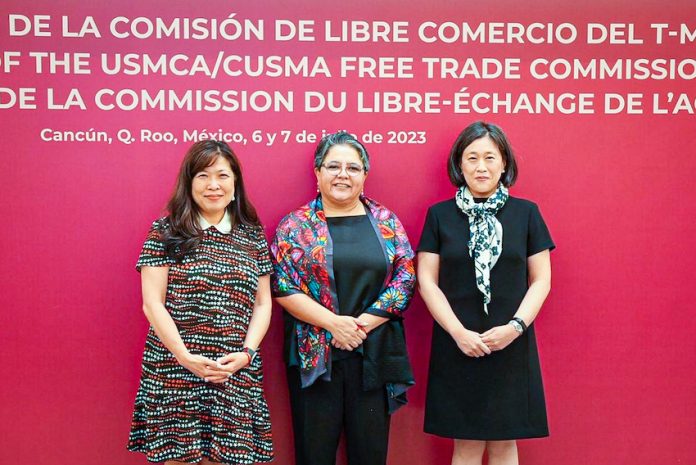Energy, genetically modified (GM) corn, the protection of the vaquita marina porpoise and mining were among the issues discussed during bilateral talks Mexico’s Economy Minister Raquel Buenrostro held separately on Thursday with United States Trade Representative Katherine Tai and Canadian Minister of International Trade, Export Promotion, Small Business and Economic Development Mary Ng.
The three officials are in Cancún, Quintana Roo, for the third meeting of the United States-Mexico-Canada Agreement (USMCA) Free Trade Commission.
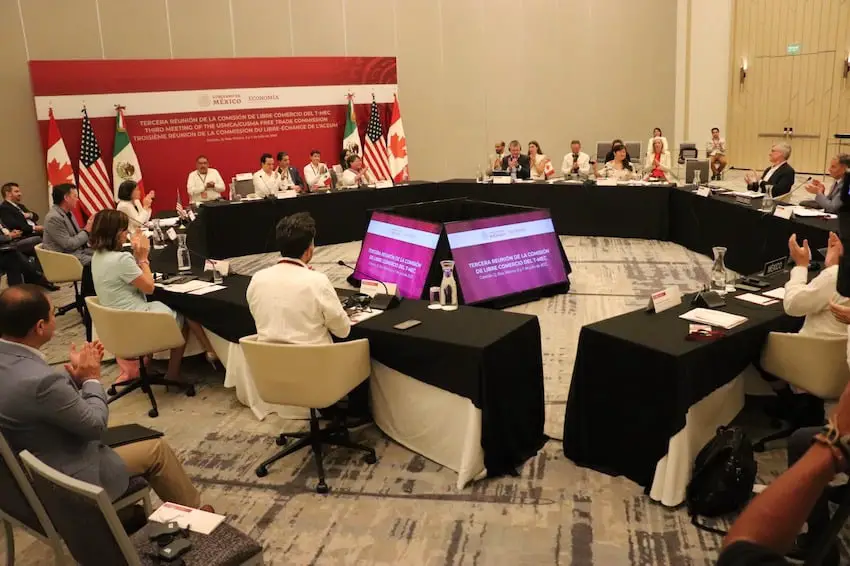
In her meeting with Buenrostro, Ambassador Tai “stressed the importance of Mexico fully meeting its USMCA commitments, including those related to certain of Mexico’s energy measures [sic], enforcement of its fisheries-related environmental laws, and biotechnology measures,” according to a statement issued by the Office of the United States Trade Representative (USTR).
In 2022, both the United States and Canada requested dispute resolution consultations with Mexico under USMCA over energy policies that favor Mexican state-owned companies over private foreign ones. The issue still hasn’t been resolved almost a year later.
Tai said before Thursday’s meeting that some progress had been made, but “deep-seated” concerns remained.
“If we are not able to make more progress, the next step in the formal toolkit would be the request for a dispute settlement panel,” she said.
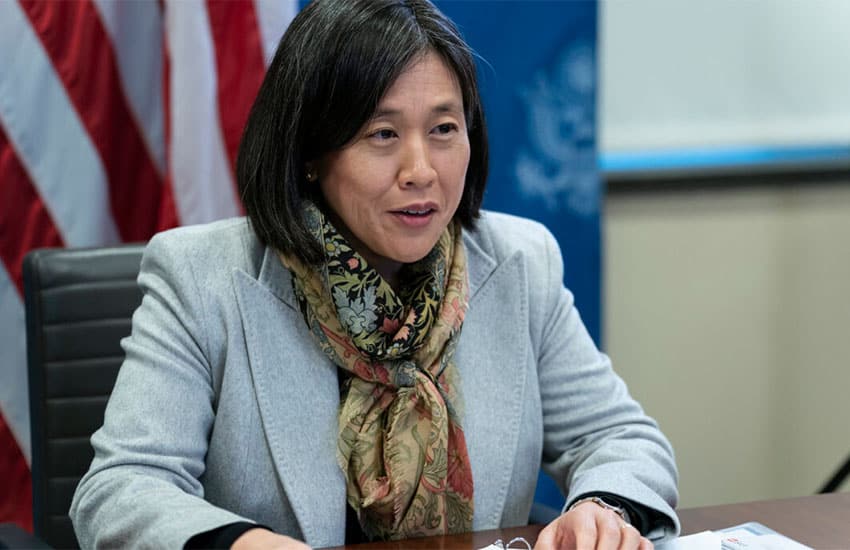
That option has been available to the United States since late last year, but it has chosen not to use it. There was no indication in the USTR statement, nor in a press release issued by Mexico’s Economy Ministry (SE), that the request for a panel was imminent.
The Canadian Ministry of International Trade said that Ng in her meeting with Buenrostro “expressed gratitude for the progress between Canada and Mexico on Mexico’s energy reforms, addressing concerns of Canadian companies, and looks forward to a full resolution.”
The biotechnology measures mentioned in the USTR statement refer to Mexico’s plan to ban imports of GM corn for human consumption by 2024, as well as GM corn used as animal feed at an unspecified later date. The United States, a large exporter of yellow corn fodder to Mexico, requested dispute settlement consultations on that issue early last month, and Canada subsequently said it would participate in the talks as a third party.
President López Obrador is steadfastly committed to Mexico’s plan to ban GM corn and acknowledged last month that the United States “might take us to a panel.”
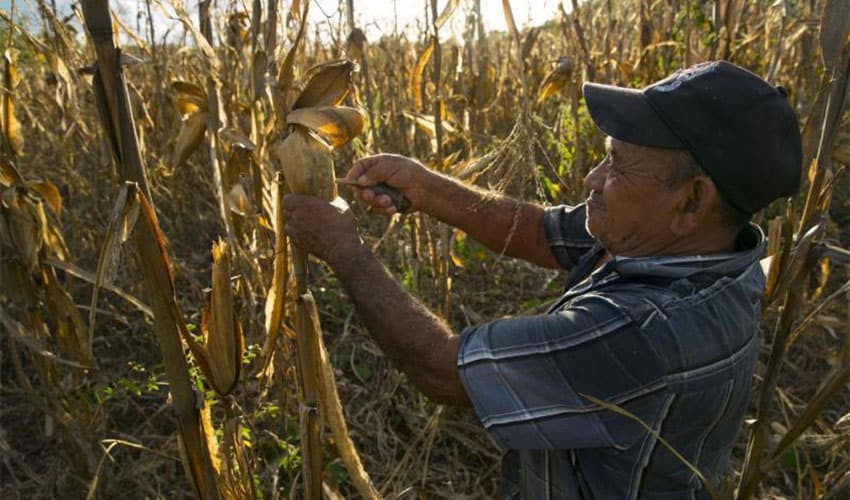
The president, who asserts that GM corn is harmful to human health and poses a threat to native Mexican maize, said earlier this year that “no agreement in the world allows goods that are harmful to health to be bought or sold.”
The USMCA has “clauses that protect consumers, just as the environment and workers are protected,” he added.
The United States can request the establishment of a panel if a resolution isn’t reached 75 days after the commencement of the consultations. Tai reiterated the U.S. position on the GM corn issue before Thursday’s meeting with Buenrostro.
“We stand behind the safety of our agricultural products that have been enjoying a very robust trade between our three countries for several decades now and will continue to pursue our rights and interests,” she said.
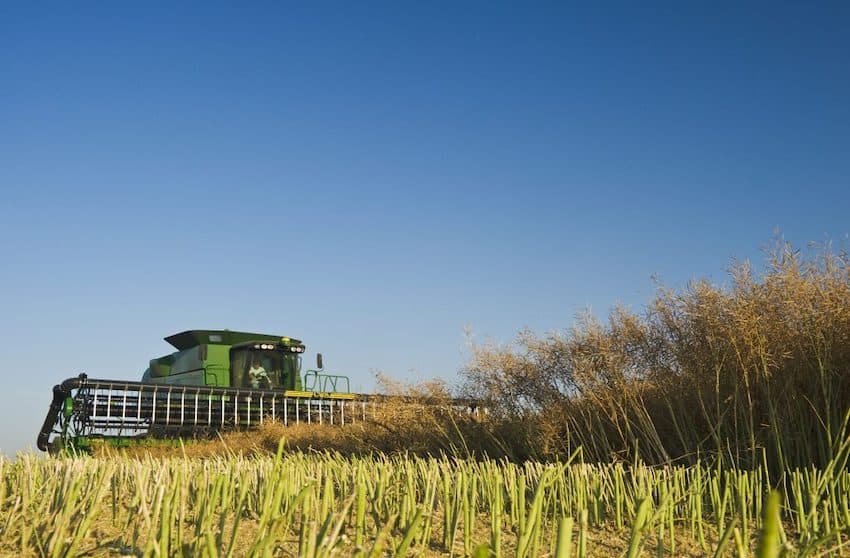
The SE said in its statement that “relevant advances in the preservation of the vaquita marina and the biodiversity in the upper Gulf of California” were discussed during Buenrostro’s meeting with Tai.
Mexico’s Environment Ministry announced last month that it will expand the “zero tolerance” protection zone for the critically endangered porpoise, whose numbers have been decimated by gillnet fishing for totoaba, a species of fish whose swim bladder is considered a delicacy in China and some other parts of Asia. The vaquita has suffered from being frequent bycatch in totoaba gillnets.
The USTR statement said that Tai also “raised concerns about regulatory uncertainty facing U.S. electronic payment services providers in Mexico” and spoke to Buenrostro about “the importance of addressing the recent surge of imports of steel and aluminum products.”
The two officials “agreed to have their teams intensify their engagement” on the latter issue, the statement said.
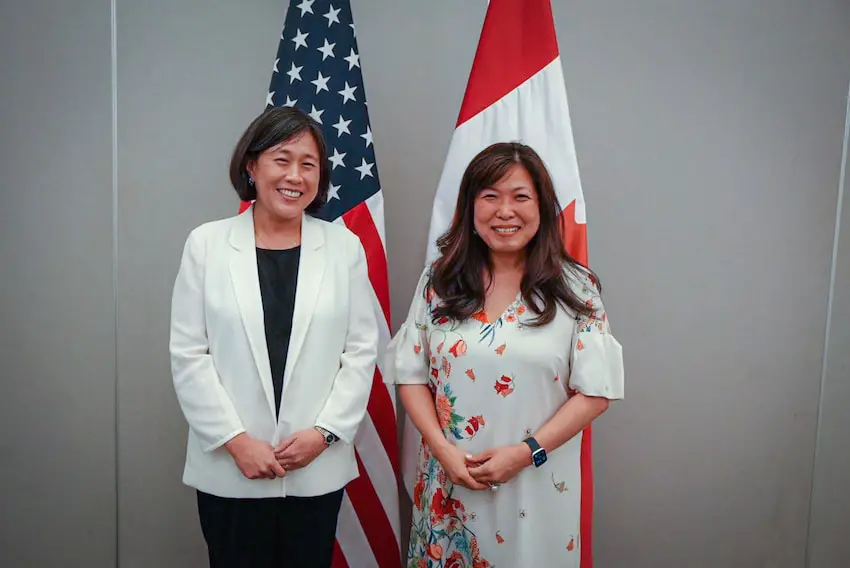
With regard to the USMCA’s “rapid response” labor mechanism — which the United States has used to ask for labor reviews at Mexican workplaces including a mine and a tire factory — Buenrostro “emphasized the importance of a reasonable and good faith use” of the measure, saying that it should be a “last resort” and not seek to replace “national institutions,” according to the SE statement.
The Economy Ministry said that Mexico’s new mining law — which reduces the initial length of mining concessions from 50 years to 30 years, among other measures — was one of the issues discussed in Buenrostro’s meeting with Ng.
The Canadian official “highlighted the important contributions of Canadian mining companies to the development of the Mexican economy” and “discussed the importance of implementing mining reforms that uphold rules-based trade,” including under the USMCA and World Trade Organization agreements.
If the Canadian government believes Canadian mine owners are being treated unfairly in Mexico, it could potentially challenge the new mining law under USMCA mechanisms.

The SE said that Buenrostro and Ng also spoke about a ruling in Mexico in Canada’s favor in January regarding a dispute with the United States over content rules for vehicles, as well as “other issues of shared interest.”
Trilateral talks were scheduled for Friday, the summit’s final day.
The USTR said in a statement last week that officials would “discuss how the parties can further facilitate economic growth and investment to increase competitiveness in North America.”
Tai’s office said that exports of U.S. goods and services to Mexico and Canada were valued at almost US $790 billion last year, a 31% increase from 2012 and a 366% increase from 1993.”
Mexico was the United States’ second largest trade partner last year after Canada, with two-way trade worth $779.3 billion. Mexican exports accounted for $324.4 billion, while U.S. exports were worth $454.9 billion.
Two-way trade between Mexico and Canada was valued at $49.7 billion in 2022, according to the Canadian government.
With reports from Reuters
